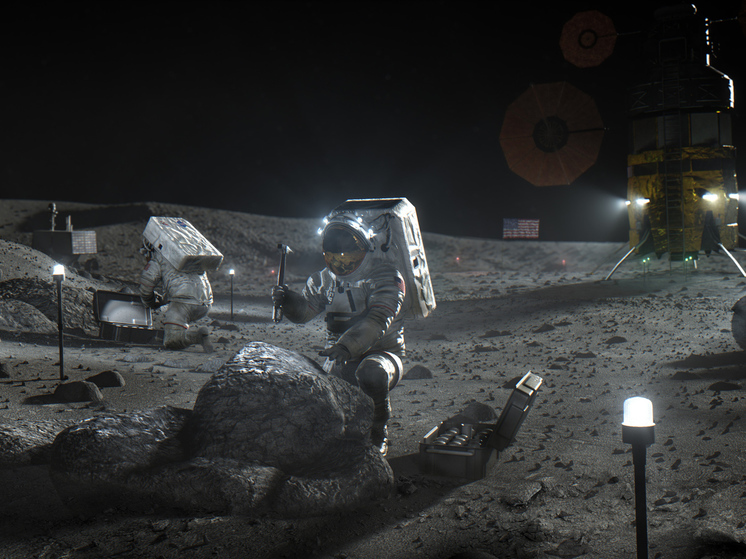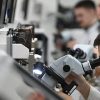Unpleasant effects on erections may last for decades
A new NASA-funded study ahead of manned missions to the Moon and Mars has found that deep space astronauts may experience serious and long-lasting erectile dysfunction dysfunction.

Scientists say homesickness, wasted muscles, thinning bones, an increased risk of cancer and the prospect of dying in the endless vacuum of space are not enough. Male astronauts may also return from deep space with erectile dysfunction.
In a study said to be the first to evaluate the effects of galactic radiation and weightlessness on men's sexual health, NASA-funded researchers found that galactic cosmic rays and, to a lesser extent, microgravity can impair erectile tissue function, with consequences can last for decades.
According to The Guardian, expressing their concerns in a report published on Wednesday, American researchers said they had identified “a new health risk that should be taken into account when exploring deep space.” They called for close monitoring of astronauts' sexual health upon return from future deep space missions, noting that certain antioxidants may help counteract harmful effects by blocking harmful biological processes.
“While the negative effects of galactic cosmic radiation were long-lasting, the functional improvements caused by targeted effects on tissue redox processes and nitric oxide suggest that erectile dysfunction is treatable,” says Dr. Justin La Favor, a neurovascular expert. dysfunction at Florida State University and senior author of the study.
The warning comes amid a renewed focus on deep space missions as NASA and other major space agencies prepare for long-term missions to the Moon and more ambitious missions to Mars. NASA's Artemis program expects to send astronauts to the Moon as early as next year, with crewed missions to Mars tentatively planned for 2040.
Since the dawn of the space age, scientists have studied the effects of weightlessness and cosmic radiation—high-energy particles, X-rays, and gamma rays emanating from stars and other celestial bodies—on human physiology. This work has led to the introduction of preventative measures, including special exercise regimens on the International Space Station (ISS), to protect astronauts from bone and muscle loss.
But, according to Dr. La Favora and his medical school colleagues Wake Forest University in North Carolina, the effects of space flight on erectile dysfunction have not been studied. “Although erectile dysfunction affects more than half of men over 40 and is an important factor in life satisfaction, the effects of space travel on erectile function are still unclear,” they write in Faseb.
The Earth is well protected from cosmic radiation by the planet's magnetic field and thick atmosphere, but there is no effective barrier on the Moon, Mars, and the space in between. On board the ISS, crews are protected by shielding and the Earth's magnetic field, but still receive as much radiation in one week as a person on earth would experience in a year.
Without a ready-made set of humans at hand, the researchers turned to rats to study the effects of space flight on male physiology. In a series of experiments, dozens of rats were suspended from harnesses at a 30-degree angle and exposed to simulated galactic cosmic rays at NASA's Space Radiation Laboratory in New York.
Analysis of rat tissue a year later showed that even minor exposure to galactic cosmic rays cosmic rays increased oxidative stress in animals. This interfered with the function of the artery that supplies blood to the penis and erectile tissue. Weightlessness also had an effect, but not as pronounced, writes The Guardian.
“Taken together, these results suggest that the neurovascular function of erectile tissue may be impaired during the remaining period of astronauts' sexual health after returning to Earth from long-term exploration of deep space,” note the study’s authors.
Not that all this is bad news for future astronauts, The Guardian reassures. Treatment with specific antioxidants appears to improve tissue function after exposure to galactic cosmic rays.






















































Свежие комментарии